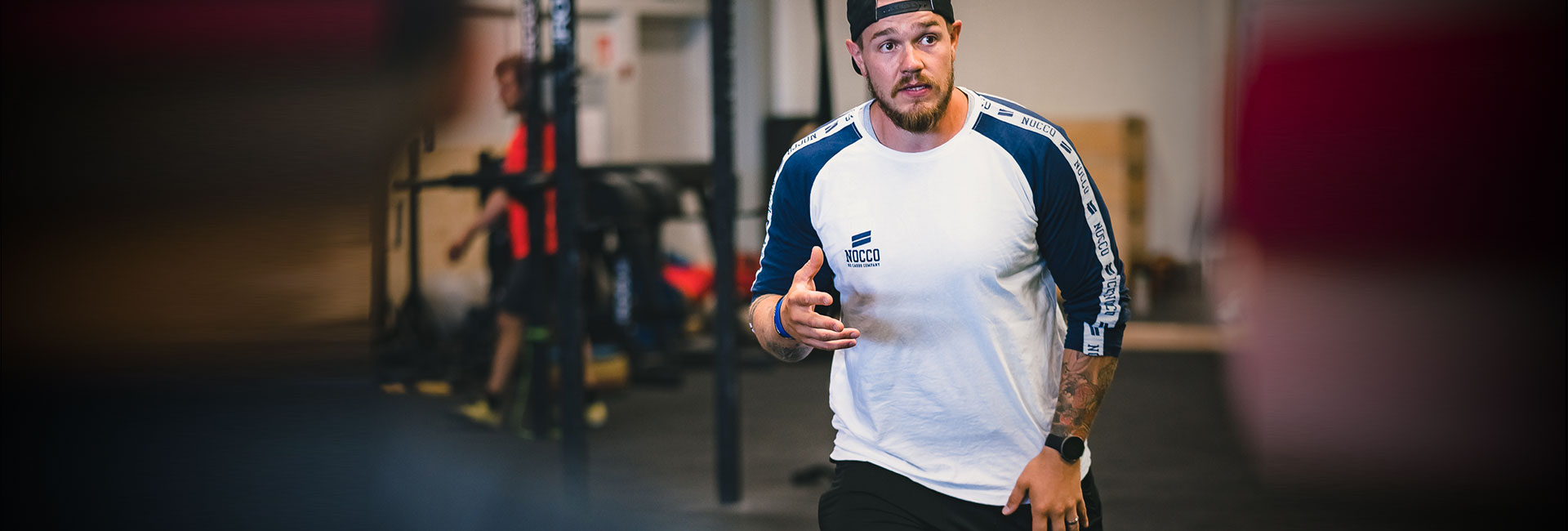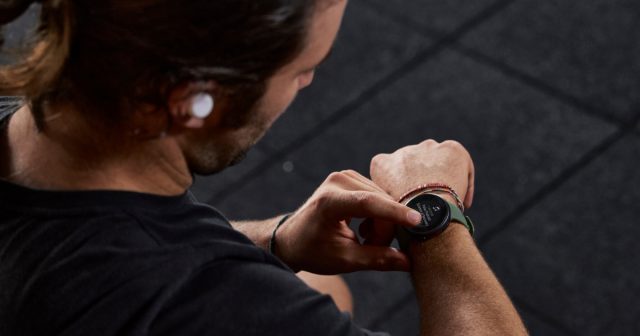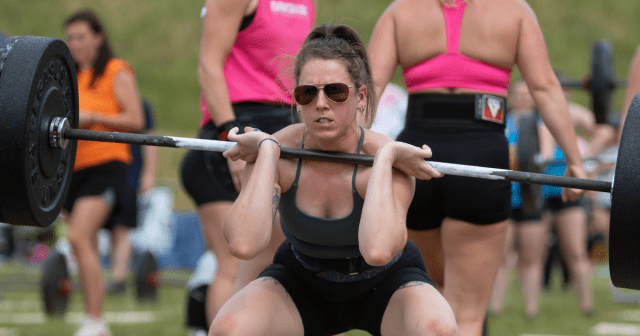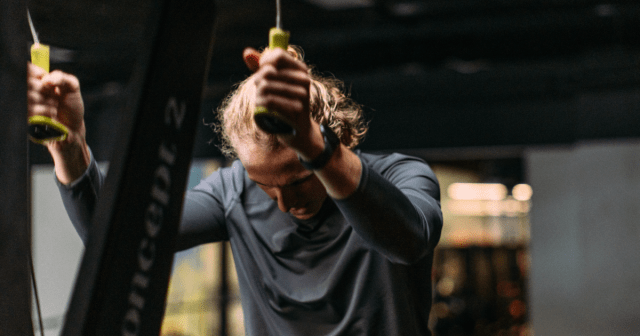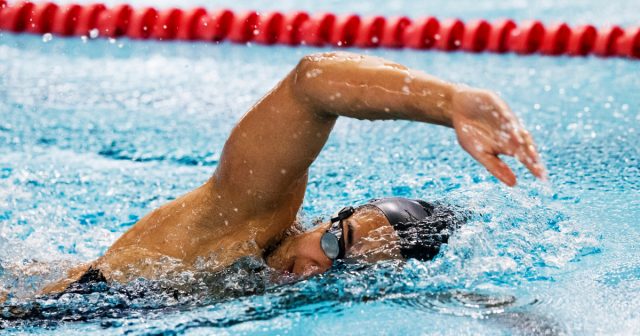When it comes to strength and conditioning, Finnish fitness coach Ville Rintala is an expert at keeping athletes performing at their peak. Working with professional ice hockey players and ringette champions (including the Buffalo Sabres defender, Rasmus Ristolainen) means Rintala knows how essential diet, recovery, and listening to your body is when it comes to training. We grilled him for some key insights that every athlete should know.
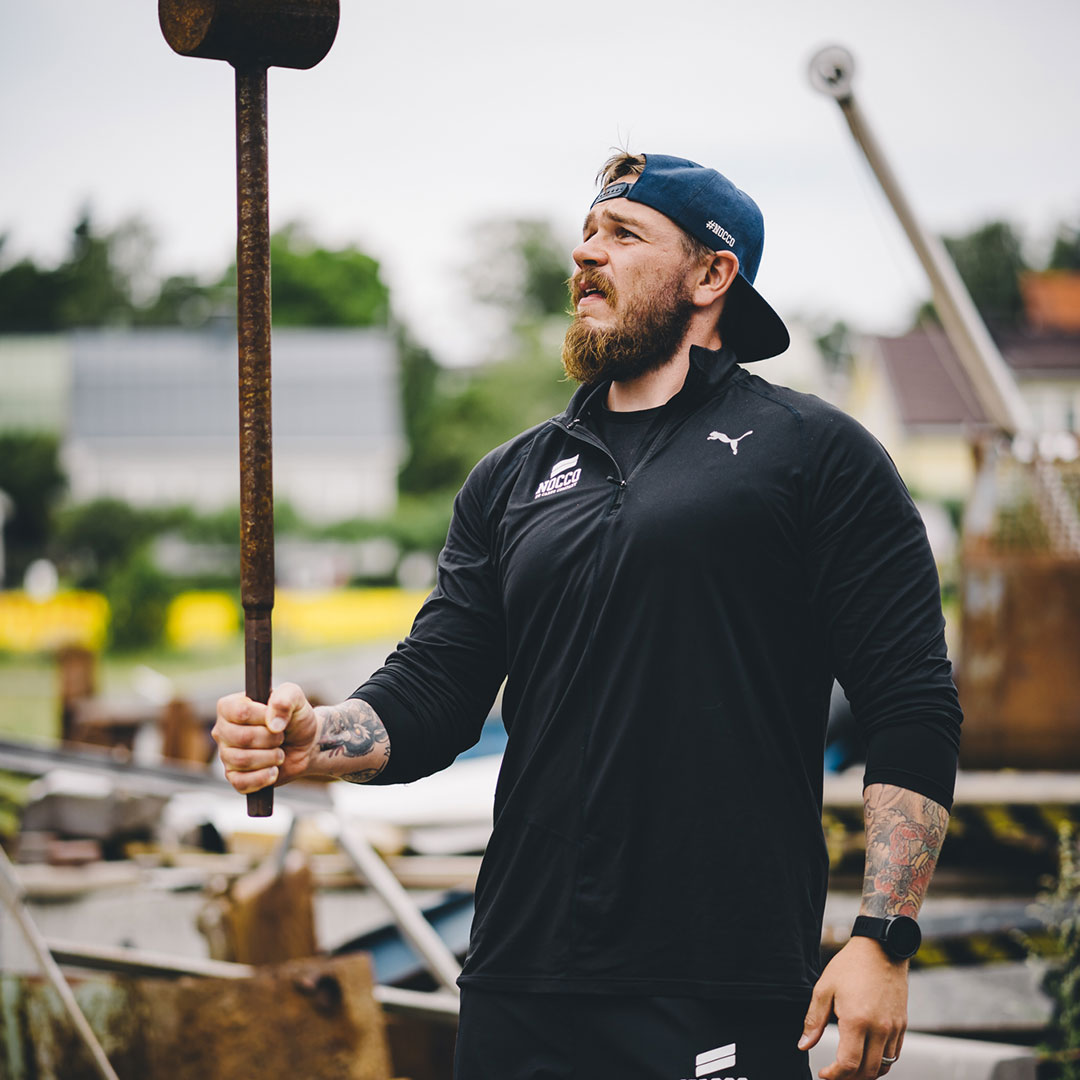
Can athletes ever have a ‘cheat day’ or do they always need to follow a strict diet?
Food should be about the same thing as training: quality. If you increase the quality of the food you eat, then you can expect an increase in the quality of your performance. Every athlete should aim for the highest quality in competition, right? Then their nutrition needs to be of the highest quality as well.
Aim to eat well so you can not only train as hard as possible but also allow your body to digest and use all the nutrients. Often athletes eat too little or too much.
Eat your greens – a lot of them. You can’t eat too many green vegetables. If you don’t like greens, try a juice or green smoothie to get your greens in.
Try to eat high-quality, locally sourced meats and fish, such as chicken, beef, and salmon. I also recommend experimenting with vegan options to see how your body reacts. Many of my athletes eat 50-70% vegan, as it enhances both endurance and recovery.
There are so many things in nutrition to think about, and studies are coming up all the time about fermented foods, probiotics, etc. Every athlete should start educating themselves about nutrition and experimenting with it themself or with a professional.
Here are a few easy guidelines for high-level performance nutrition:
- Don’t overdo your protein intake
- Drink a lot of pure water.
- Use high-quality electrolytes with your water (every day).
- Find out what’s the best supplement line for you to use. My go-to supplements are vitamin D and C, zinc, magnesium, probiotics, glutamine, digestive enzymes, curcumin, and amino acids.)
- Eat as healthy as possible. If you allow yourself a treat, do it in the middle of a training week (see explanation below).
- Stick to your local-produced vegetables and protein sources. By buying local you also support local businesses.
Here’s a key thing I’ve discovered: if you have a so-called ‘cheat day’, you should do it in the middle of your training week. When the load is the highest, and your body is depleted from nutrition, you want to give it more so you can maintain the performance level your body demands.
Usually, when people have a ‘cheat day’ it’s on weekends when they rest. The issue with this is that you are already loading up on nutrients. If you lay down on your couch and play PlayStation all day, just stick to healthy food and drink a lot of water.
The athletes I coach can treat themselves every day. This is because their treats will consist of raw food, gluten-free, dairy-free, and often vegan options.
Have a go at making healthy treats yourself. I often tell athletes to find a treat that’s healthy. They usually end up treating themselves with a good smoothie bowl, raw cake, hummus, and vegetables, etc.
How important is mental renewal? What do you recommend for calming the mind?
My athletes use Polar Sleep Plus™ sleep tracking and I ask them every day how they slept. If there’s even a hint of bad quality sleep, we do a debrief.
Every athlete should find a way to relieve stress and calm their mind. Some athletes have a mental coach. Others meditate or do yoga. Some use Neurosonic technology or let off steam by taking a sauna and ice baths. There are many ways to achieve mental renewal, so it’s a personal choice. The most important thing is to find a way you can calm yourself and ease your load.
My athletes use Polar Sleep Plus™ sleep tracking and I ask them every day how they slept. If there’s even a hint of bad quality sleep, we do a debrief. Why didn’t you sleep well? What did you eat? Did you stay up too late, etc? We try to find out what happened and address it.
How do you include variety in training for endurance athletes/team sports players?
I use a split week, built around performance. It consists of speed/agility training, strength, movement, stability, endurance, lactic acid capacity, mental, hand-eye coordination.
My goal is to make athletes better at their sport, not at training in a gym. If you consider what performance is, there’s a lot more to it than strength and speed.
Every training session is built on movement awareness, which every athlete should incorporate in their training no matter what their sport is.
Movement awareness consists of nine different aspects:
- Visual
- Auditive
- Tactile
- Proprioceptive
- Direction
- Spatial
- Temporal
- Vestibular
- Body control
Notice I didn’t add in movement control? That’s because we need all the above to create movement control. For example, without body control, we can’t have movement control, etc.
My recommendation for endurance/team sport athletes/coaches is to incorporate these into their training and see how your performance turns out.
Are there any classic mistakes or common injuries that you feel are avoidable?
Most injuries happen when you are tired and have not recovered properly. If you take care and listen to your body, you won’t suffer injury.
My athletes tend to avoid common injuries by listening to their bodies, using a lot of recovery and mobility techniques, and having a weekly massage a couple of times a week. Most injuries happen when you are tired and have not recovered properly. If you take care and listen to your body, you won’t suffer injury. If you do get injured, you should ask your coach why this happened.
Common injuries I hear are lower back pain, knee pain, and shoulder pain. If you have these, ask your coach why this is happening. If they don’t know why then you probably should think about changing your coach (sorry to say). A coach’s main job is to make sure you don’t get injured. There’s no point in that occurring. We want our athletes to stay as healthy as possible so that they can train as hard as possible, and compete for as long as possible, at the highest possible level.
The old school way of thinking was training to get stronger. The ‘new school’ way focuses on becoming a better athlete. This means training smart. Listening to your body and recovering in all aspects. Quality is the most important thing, not quantity. You have to allow time to recover before your next session, and your training sessions should be as short and as effective as possible.
If you train for two hours a day, five or six times a week, with 100% ‘balls to the wall’ attitude, then you’re going to end up injured at some point. When you train you should use your time effectively. Speed days should have low reps with a lot of speed and ample rest. Strength and conditioning days should vary from fast lifting with small weights and lots of recovery, to lifting large weights as explosively as possible and resting for a good period of time.
I usually don’t recommend trying many different exercises, but rather training with three-four different options to keep the quality as high as possible throughout the training session. You should spend a lot of time in warm-up to prepare your body for the training session.
WHich BAD HABITS AFFECT AN ATHLETE’S PERFORMANCE?
Staying up late. Playing too many video games. Spending too much time on your phone (the most common issue) and looking at your phone in bed before sleep.
Don’t have bad habits. Try to improve your habits, not vice versa.
If you liked this post, don’t forget to share so that others can find it, too.
Or give it a thumbs up!
I like this article
Please note that the information provided in the Polar Blog articles cannot replace individual advice from health professionals. Please consult your physician before starting a new fitness program.
